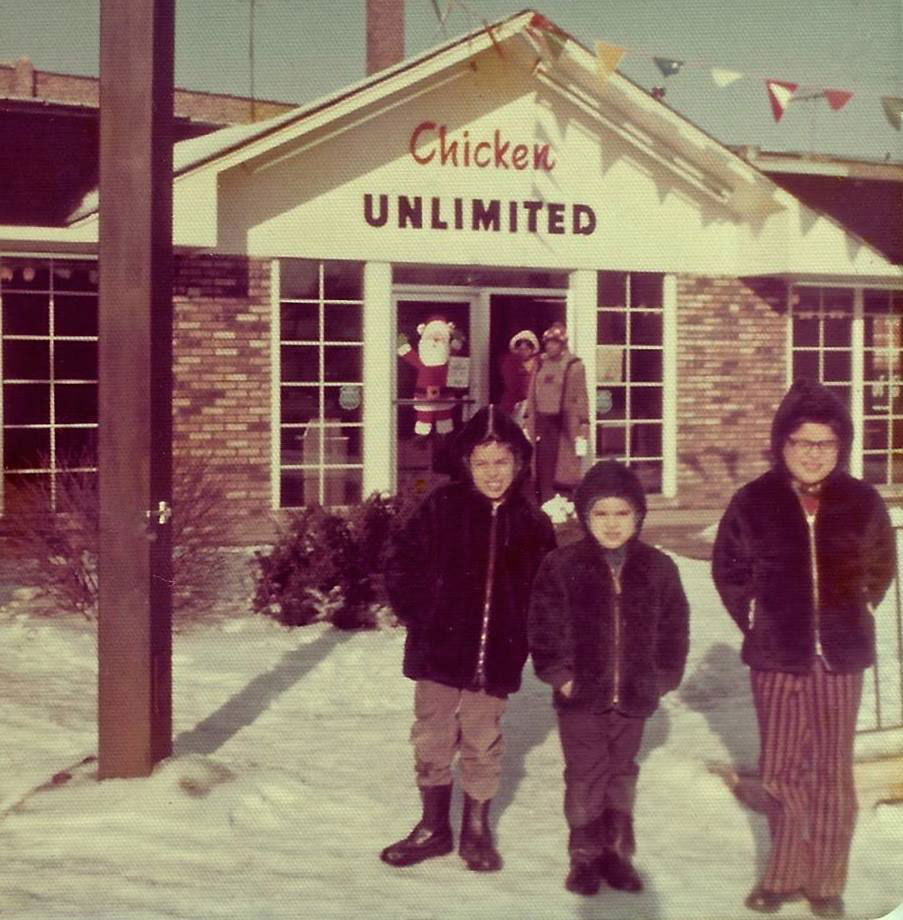During a tour of his old neighborhood, Pete Kastanes idles his Toyota Corolla in front of Frank’s Upholstery, a two-story beige brick storefront on 79th Street. An upholstery shop seems like an odd stop for a youthful reminiscence, but this building was not always dedicated to re-covering sofas. It once contained a music store, right across the street from Bogan High School, from which Kastanes graduated in 1981.
“That used to be Kroozin’ Music II,” Kastanes recalled. “They sold cassette tapes, eight-track tapes. They sold bongs, black lights, posters. I used to hang out when I was in high school. Sometimes, I wanted to be alone and browse. I bought my first eight-track there — Styx, Renegade.”
Nostalgia, it has been written, is the white man’s malady — especially in a big city like Chicago, where waves of ethnic succession remake neighborhoods in a generation. Kastanes grew up on the South Side in the 1960s and ’70s — in South Shore, Roseland, then Ashburn. He remembers Gately’s Peoples Store. Wieboldt’s. Peacock Alley in Ford City Mall. Southport Lanes. White Hen Pantry. Bob Collins and Wally Phillips on WGN. National Food Stores. Twice a week, Kastanes goes down to the basement of the house in Oak Lawn he shares with his mother and brother, and records those memories for his Vanished Chicagoland Stories, the Podcast, which is devoted to Chicago businesses that have passed into history. He has recorded more than 200, and they’ve been listened to nearly 200,000 times. He doesn’t have a radio voice — it’s high pitched, soft spoken — but he has a friendly voice, and his childhood was the childhood of so many Chicagoans who have also moved away.

“People my age, mostly Baby Boomers, they say, ‘Pete, you take me to a time when we were happy,’” the 59-year-old Kastanes says over a cheese pizza at Vito & Nick’s, one of the few Ashburn businesses that hasn’t vanished since his high school days. “They say, ‘It gives me a nice feeling, a safe feeling.’”
Kastanes’s parents were both Greek immigrants. In Roseland, the family lived in an apartment above a shoe store, and Pete’s father took the bus downtown to his job as a waiter at the Conrad Hilton — although he eventually saved enough money to buy an Oldsmobile Cutlass Supreme (the subject of Episode 204). Looking out the windows of buses on family outings imprinted on young Pete’s mind the neon signs of the now-closed businesses he discusses on his podcast.
When Kastanes was a boy, Roseland “was magical. Really, it was like a second downtown. It was beautiful back then. They had every store that you needed: a shoe store, a dress shop, restaurants. Also the big Gately’s department store, right? I mentioned that many times. I have fond memories of that. It was a beautiful store. My favorite memory was the donut machine in the basement. They made homemade donuts right in there.”
Gately’s vanished in 1981. Then the shoe store, the dress shop, and the restaurant vanished, too, leaving South Michigan Avenue a derelict shopping strip of urban fashion boutiques. But Kastanes took his listeners back to the Roseland of his early years in Episode 88, titled “My Christmas Memories of Gately’s People Store in Roseland And My Favorite Christmas Movie of All Time.”
Back in the Toyota, driving down Pulaski Road, Kastanes points out more stores and restaurants that used to be other stores and restaurants: “That building over there, that used to be a Jewel. My mom used to shop there. Conti’s Pizza, that used to be Luigi’s. You see this Mexican restaurant here? It used to be called the Silver House Restaurant. It was a 24-hour diner, owned by Greeks.”
Finally, Kastanes arrives at the place that holds more of his memories than any other “used to be” building in Ashburn: the brick house at 3848 W. Hayford St., where his family lived from 1974 to 1995.
“There’s my bedroom, right there,” he says. “They changed the windows. There used to be grass in the front yard. They bricked it over. That black thing, the porch, it used to be white. The one that lives in the house now is African-American. My brother and I visited one day. He let us in. We were happy and we were sad, because we were remodeling.”
Kastanes’s teenage years in Ashburn were not as magical as his boyhood in Roseland, he says: “When I grew up there, I didn’t have a good time. I was bullied. The other kids bothered me. But they grew up. It’s fine now. I like where I live now.”
In 1995, the same year his family moved to Oak Lawn, Kastanes used his computer science education from Daley College and DeVry Institute to land a job in the ticket department at American Express in Rolling Meadows. His position was outsourced in 2007, but he frequently discusses his days at American Express on Vanished Chicagoland Stories, because he loved the work, and because it was his last full-time employment. Now, he says, “I’m a podcaster,” bringing in money from advertisements on his page.
Neighborhoods change. Jobs disappear. The good times go away. But Kastanes can always go down to his basement and reminisce about the way things used to be.



